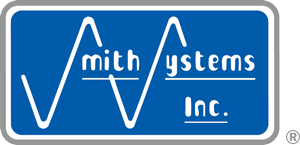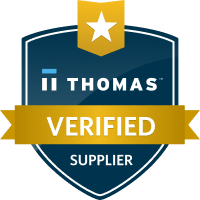Smith Systems, Inc. (SMITH SYSTEMS ®) is an ISO-9001-registered manufacturer of sensors for Speed, Motion and Temperature, as well as controls, custom instrumentation and cabling associated with those sensing devices. Founded in 1978 by Chief Operating Officer William L. Smith, the company has achieved an enviable reputation, domestically and internationally, for the highest quality and reliability, with its products “Designed to Survive.®”
With production facilities in Brevard, North Carolina, USA, the company’s capabilities meet or exceed exacting requirements of commercial standards found in assembly and process machinery, aerospace vehicles, rail industry applications and in high performance racing vehicles. Proud to be “Buy America” certified, SMITH SYSTEMS ® has thrived in a highly-competitive market.
Background Some form of the “Buy American” idea has been around for more than 85 years, starting with the “Buy American Act of 1933, which was passed to promote US jobs and which requires the US Government to prefer US-made products. That earlier legislation is not to be confused with a similarly-named “Buy America Act” that came into effect in 1983. That latter law, a provision of the “Surface Transportation Assistance Act of 1982,” applies only to mass-transit-related procurement’s valued over US$100,000 and funded at least in part by federal grants.” Unfortunately, that latter legislation also provides for occasional waivers, which when abused, produce counter-productive results.
In subsequent years, a plethora of agency and departmental interpretations to promote the Buy America idea, including those of the Federal Transit Administration, have included policies authorizing funds for projects “…only if the steel, iron and manufactured goods are produced in the United States.” And most recently, a “Presidential Order on Buy American and Hire American,” signed by President Trump on April 18, 2017, has given rise to a bipartisan Senate Bill S.2284, currently under review, which may provide greater oversight of waivers and other support for the “Buy America” policy.
In recent years, European companies have participated in the improvements and growth of the US rail sector, providing them with very substantial economic benefits. Frequently, European rail car and locomotive manufacturers have claimed to provide “US content” in accordance with “Buy America” guidelines, but through various administrative and procedural means, they have been permitted to pass through European products which gain unfair competitive advantages over domestic US suppliers of virtually the same parts. Ironically, the European products often pass through at roughly twice the price of equivalent US domestic products. Nevertheless, they succeed because of the lack of effective safeguards that should ensure fair and open competition. Surprisingly, inattention and careless US domestic procurement practices, at times, also play a role.
The lack of an effectively enforced “Buy America” policy for foreign suppliers has created serious unintended consequences. Foreign suppliers are motivated to exploit available opportunities to exclude highly-qualified US suppliers in procurement activities. When they succeed in limiting the competition in that way, US rail entities end up paying higher-than-necessary prices for parts that are often of lower quality then desired. And finally, lack of support for a “Buy American” policy directly and negatively impacts on US domestic economic interests.
Smith Systems® has thrived through the years in a highly-competitive market and we are very good at what we do. We therefore welcome challenges, but expect fair and open competition, with fair and honest bidding practices. While we cannot expect to win every competition, we believe strongly that we should have the opportunity to compete for projects that are being built for the US market by Europeans and other foreign companies. Our clients can help in that endeavor, and it will be very much in their interests to do so.
Conclusion There is reason to hope that the new legislation, currently under review, will introduce some heretofore absent Buy America compliance provisions. Whether it does or not, we believe that adherence to a Buy America policy by both US suppliers and consumers will unquestionably be a “WIN-WIN” for them both. Call us to learn more about the significant advantages of relying on US producers of unquestioned high quality products and services.

